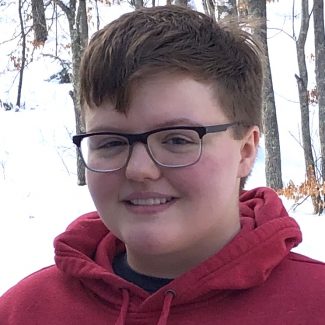
Even though I was diagnosed with a stutter at six years old, there’s a part of me that still wonders sometimes if I can properly call myself a Person Who Stutters (PWS) because of how mild it usually is, and how well I can subconsciously hide it. I was a very covert PWS up until high school, which is when I started – and am still continuing – to release my own mental tension over whether anyone else cares if I stutter or not. Through gaining confidence in myself and my speech, the fact that I’ve come to realize is this: however severe a person’s stutter is, it should in no way determine their validity as a PWS.
There are no special requirements that a Person Who Stutters has to meet in order to be called a PWS, other than having the stutter itself; there’s no one standing at the door of the NSA telling you exactly what hoops you need to jump through to be valid. Especially among other PWS, I’m often worrying in the back of my mind about how much I’m stuttering in comparison to the others because of how mild my stutter can be, which is totally backwards to what most other PWS might be worrying about. Despite the strangeness of it, it’s a real thing that occupies a space in my brain. However, accepting these statements as truth in my mind has greatly increased my confidence in my speech, because it reduces the fear of judgement that would otherwise plague me, even when around other PWS. Understanding that fluency comes and goes for everyone stabilizes my mentality, which makes it so much easier to communicate shamelessly.
Any kind of stutter that a person may have is going to have some sort of impact on them, and therefore is worthy of being addressed rather than ignored. From my experience with my own stutter and hearing the experience of others, the anxiety that comes with a stutter exists for everyone, at least at some point in their lives. Dealing with a stutter alone and in silence can be deprecating to one’s mental health, since the person might not even know what’s happening to them or why, regardless of the severity of it. Therefore, this reinforces the idea that no matter how severe a person’s stutter is, their stutter is valid enough to be talked about and dealt with properly, whether that be through a knowledgeable SLP, the NSA, or otherwise. I’ve found great acceptance and validation through both.
It might seem strange to a lot of People Who Stutter, but the question of my validity as a PWS is brought up in my mind a lot. To combat it, I’ve convinced myself of the fact that how much I stutter doesn’t matter in the big picture; it’s going to affect me anyway, and is worthy of being addressed and talked about rather than beaten down and ignored. With a bit of effort, I can now hear over the little voice in the back of my head telling me I’m not good enough, and it is my sincere hope that whoever reads this can realize something similar for themselves.
Author Rowan (he/they) is sixteen and believes a stutter shouldn’t hold anyone back from doing what they enjoy. Rowan is a sophomore at Pequot Lakes High School in Minnesota, and has become very involved in their school’s music program, as well as Speech, GSA, Knowledge Bowl, and theater, all of which have greatly enhanced their confidence in front of a crowd and overall. Starting from their first conference in 2018, the NSA gave Rowan a welcoming community in which they were not the only one who stuttered, and helped them to grow with the sense that they were not alone. It is now their wish to provide that community and support for others!
This piece is part of an ongoing series, written by our NSA Teens.
